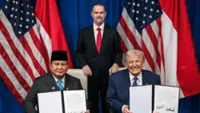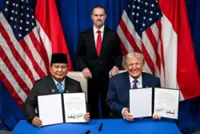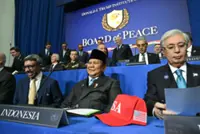JAKARTA (Jakarta Post/Asia News Network): Indonesia supported the launch of a United States-led regional economic initiative this week but was also adamant about closely studying the proposal before making any concrete commitments, as Washington revelled in the limited fanfare of its “return” to Asia.
Through the Indo-Pacific Economic Framework (IPEF) that he unveiled in Japan on Monday, US President Joe Biden has pledged to “work together with close friends and partners in the region on challenges that matter most to economic competitiveness in the 21st century”.





